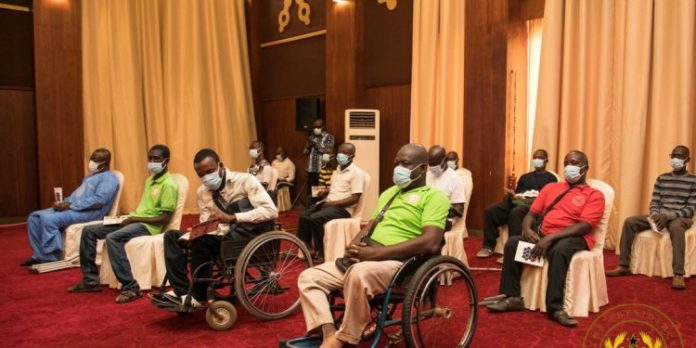|
Getting your Trinity Audio player ready...
|
The Centre for Social Impact Studies (CESIS), a research and advocacy organization has expressed reservations about the lip-service been paid to the implementation of key provisions in the Persons with Disability Act, 2006 (Act 715).
The Centre is disappointed in the manner, successive governments have neglected such basic legislation for the past 14 years, making the plight of persons with disability worse than ever.
PWDs are at this time, demanding for a systemic shift to an era where disability issues are addressed holistically across the socio-economic spectrum.
The Act passed in response to concerns by persons with disability, that their peculiar circumstances have not been sufficiently addressed by existing laws, policies and programmes, have wide ranging provisions to address these concerns, and more importantly, assert their constitutional rights as Ghanaians.
“Even though the act was meant to mainstream persons with disability into the national economy, and ensure they live very normal lives, this objective has unfortunately not been met” a statement signed by its CESIS Executive Director, Richard Ellimah cited.
“Public structures continue to be inaccessible to persons with mobility impairment. Educational institutions continue to construct more than one storey structures without elevators, making access to these structures almost impossible for students with disability.”
“We note with sadness that authorities in our tertiary institutions are especially guilty of this despicable practice. Most hospitals in the country, particularly in the districts still do not have sign language interpreters to help our brothers and sisters with hearing and speech impairment. Our public transport system does not have room for persons with disability. There is a recent case where a wheel chair bound woman was prevented from boarding a Sprinter bus because according to the driver there was no room for her wheelchair.”
CESIS posited that although the Ghanaian economy has been touted as one of the best in Africa, it has no room for persons with disability.
“Meeting the needs of persons with disability is not a favour the state is doing for them. It is an obligation that ought to be conscientiously met. We cannot claim to be fully developed as a country if a significant percentage of our population is left behind.”
CESIS, a promoter of social justice and equity, has therefore called on all political parties to commit to mainstreaming persons with disability into the wider economy by fully executing the Persons with Disability Act.
They also want parties to depart from the tokenism that has characterised past responses to the concerns of the disability community where for instance, where one or two persons with disability employed by the state are projected as an example of the state’s commitment to addressing disability issues.





